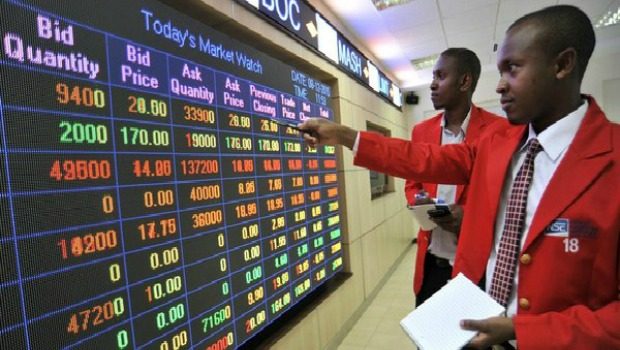Markets show selective investor activity

FOR the week ended November 21, 2025, the capital markets in the country exhibited a mixed tone.
On the equities side, the flagship all shares index of the Dar es Salaam Stock Exchange (DSE) registered only a marginal slip, while the fixed-income market showed signs of steady activity, supported by active government treasury auctions and evolving yield dynamics.
The DSE All-Share Index (DSEI) and the Tanzania Share Index (TSI) remaining literally flat to close the week at 2,567.89 and 5136.35 points respectively, representing a very modest weekly slip of approximately 0.03 per cent each.
Total market capitalisation moved equally marginally, but in the opposite direction; rising 0.88 per cent to 22.011tri/-. Domestic capitalisation also rose slightly to 13.597tri/- (+0.11 per cent).
Liquidity remained subdued, with only a handful of stocks recording meaningful turnover. The Banking, Finance and Investments sector (BI Index) continues to stand out, up by about 0.33 per cent to 9,408.61 points, underscoring investor preference for the financial services domain.
By contrast, the Industrial & Allied (IA) Index was virtually flat (+0.01 per cent) at 4,057.60 points, while Consumer Services recorded a marginal decline. On individual stocks; MCB (+17.05 per cent) registered the largest weekly gain among active counters, reflecting a strong rally following announcement of a 3:1 Rights Issue to raise additional capital.
ALSO READ: TRA Kagera surpasses three-month revenue target
The week’s gain follows the counter’s 18.92 per cent gain during the previous week. DCB Bank declined by 10.00 per cent over the week; Precision Air (PAL) was the second largest loser for the week, recording a drop of -13.79 per cent, while Maendeleo Bank Plc (MBP) slipped by 15.71 per cent despite recent reporting of substantially improved yearto-date performance.
The modest index movement and relatively thin liquidity suggest a cautious market. Investors appear to be favouring established financial-services counters, while caution persists around other sectors.
For your structuring and advisory work, this environment signals that while equity capital-raising remains feasible, pockets of liquidity risk may apply and thus issues should be clearly anchored in underlying fundamentals or clear dividend prospects.
Fixed-income market performance
The fixed-income space saw continued issuance and active secondary trading of government securities. The primary market yield curve for short-term instruments ranged from 5.92 per cent to 6.55 per cent for 35- day and 364-day bills respectively.
For longer-term sovereign debt (bonds) yields were ~10.05 per cent for 2-year Treasury Bonds, ~12.48 per cent for 5-years, ~12.45 per cent for 10-years and (weighted average).
The 15. 20 and 25-year maturities yielded in the range ~12.0-13.5 per cent. In the secondary market, bond turnover was robust and yields remain elevated relative to T-bill benchmarks, indicating heightened risk premia for longer maturities.
The upcoming T-Bond auction schedule is full, including a 5-Year bond (coupon 10.75 per cent) on 27- Nov-30 and a 20-Year bond due for auction on 18-December 2045.
These trends underscore the government’s, the Bank of Tanzania’s and investors’ sustained confidence in the domestic debt market as a reliable platform for meeting public financing needs, supporting effective monetary policy implementation and a preferred investment opportunity.
With the market slightly positive but liquidity modest, the rational strategy for capital-raising or portfolio deployment is to focus on equities offering clear dividend yields, strong balance sheets, or thematic links (eg, financial inclusion, ESG) which align with your “Democratising Finance” series.
Given the broad market is not surging, investors may require a compelling story to commit capital. The borrowing climate is active and yields remain elevated. For structuring medium-term debt, aligning projects with yields in the mid-teens (10-13 per cent) may be prudent.
Issuers may wish to consider structuring mechanisms to cover or mitigate refinancing risk, foreignexchange risk (if applicable) and maintain strong credit discipline. In conclusion, the past week produced only modest shifts in the equity market but solidly active fixed-income issuance and trading.
For Tanzania’s capital markets ecosystem, this continues to show gradual maturation: equity investors remain selective, while debt investors accept the higher yields in exchange for longer-term exposure. structuring finance in this environment means balancing yield expectations, issuance timing, investor education and clarity of purpose.





